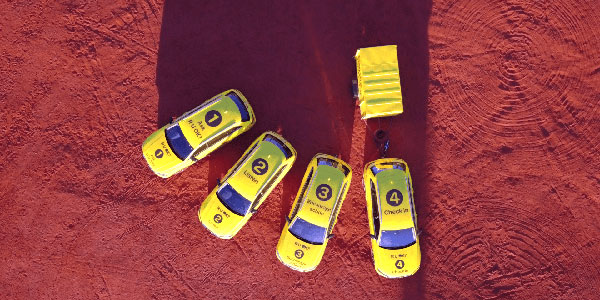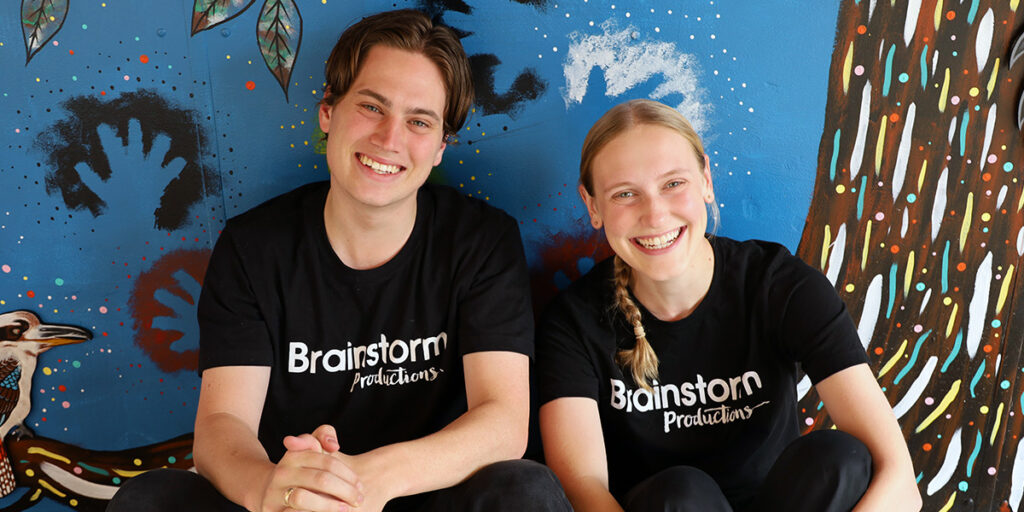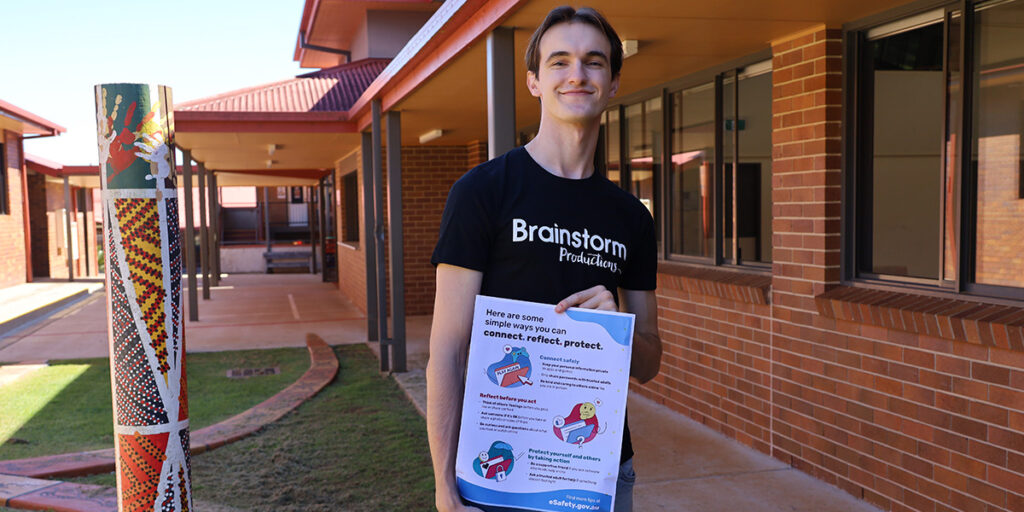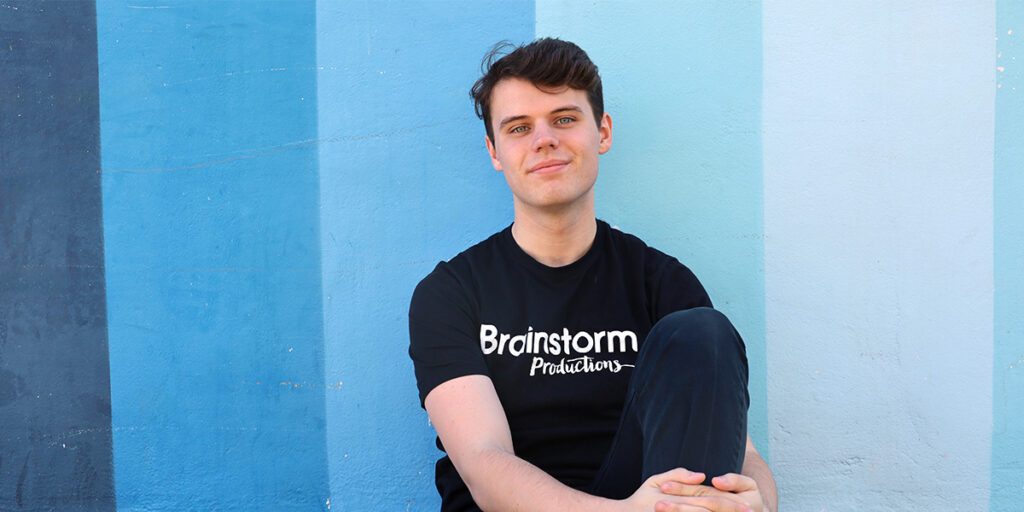This year, in the lead up to their tenth national day of action R U OK?Day on Thursday 13 September, suicide prevention charity R U OK? are on an epic cross-country tour to show Australia every day is R U OK?Day.
We sat down with Katherine Newton, Campaign Director R U OK?, to discuss why this is a message for everyone no matter their age or location.
What is the Conversation Convoy?
For the second consecutive year, we are taking 4 bright yellow vehicles, representing the 4 steps to navigating a conversation with someone you’re worried about, to 25 communities across every state and territory. The six-week journey is using events, interactions with communities and messaging on the vehicles, to encourage everyone we meet to look for the signs and start a conversation with someone they’re worried about any day it’s needed. We’re also working with and providing information on local support services for the times the conversation becomes too big for friends and family to handle on their own.
How can the community get involved?
We’d love for everyone who can to join us at the events across the country. For those who can’t make an event, we hope they’re inspired to host their own activities in their school, workplace or community to encourage the people in their world to start what could be a life-changing conversation. We’ve got lots of free resources at www.ruok.org.au to help you do this. You can also follow the journey and hear stories from the road on our website and social media channels.
What inspired the 2018 campaign theme ‘Every day is R U OK?Day’?
Since we were founded in 2009 by the late Gavin Larkin, we’ve been inspiring the country to ask, “Are you OK?” But it’s a question we need to be asking every day of the year as life’s ups and downs and the tough times in particular can happen any day of the year. So, this year we want to reinforce that checking in with our loved ones and having regular, meaningful conversations is something we need to be doing 365 days a year.
How can people make every day R U OK?Day?
It’s about habit building. We want people to think of the simple ways they can regularly connect with their loved ones for meaningful conversation. It could be making a commitment to give a loved one a call every night, emailing or messaging the one’s you’re separate from by distance weekly, locking in a regular catch-up with your best mate or making time to chat about life at training or with your colleagues in the morning. By making this part of our everyday life we’ll be better placed to have a conversation whenever it’s needed and are more likely to have the trust so they feel comfortable opening up.
What might the R U OK? message look like for teachers and schools?
For schools, it’s about creating an environment where students look out for one another, feel supported by their peers and are able to access support when they need it. That’s why we’ve developed kits, resources and ideas to help you create a connected, empathetic and supportive school community: www.ruok.org.au/education
We also can’t forget that these are workplaces too and teachers need to look out for one another. You can use our workplace resources to encourage staff to look for signs or changes in a colleague’s behaviour and start a conversation: www.ruok.org.au/work
What might the message look like for students?
Often there are things that teens in particular won’t be comfortable discussing with their teachers or parents, and that’s OK. But we need them to have the skills and a framework they can follow if a friend shares that they’re going through a tough time. That’s why using our classroom resources and making them aware of the places where they or their friends can go for extra support, like headspace and ReachOut.Com, is so important.
Another way to bring the message in to the classroom is through Brainstorm Productions educational theatre productions, like ‘Being Brave’.
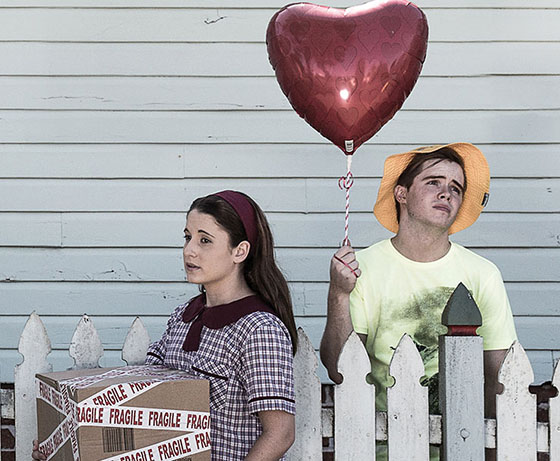
If you’re worried about someone what should you do?
It’s about starting the conversation and using the 4 steps to respond appropriately if they answer, “No, I’m not OK.” So, ask if the person is OK, listen to their response with an open mind, encourage the person to take action (and encourage them to visit a health professional if they’ve been feeling down for more than 2 weeks), and check in again soon to see how they’re going.
Brainstorm Productions is proud to be a Schools Partner of R U OK? and help take this message in to the classroom through theatre in education.
Join the conversation online or on the road at www.ruok.org.au/conversation-convoy
Need conversation tips? Visit www.ruok.org.au/how-to-ask

